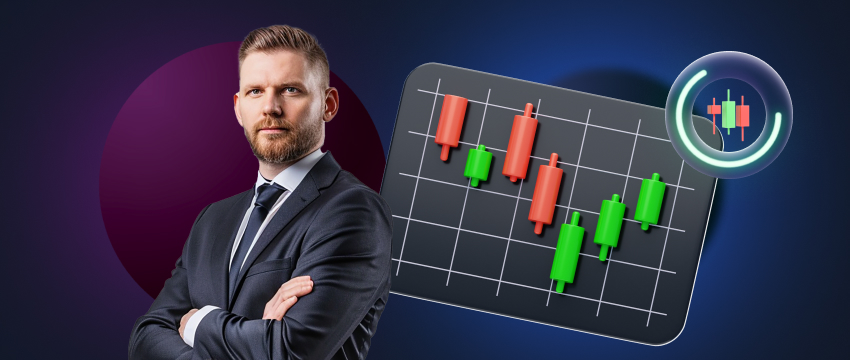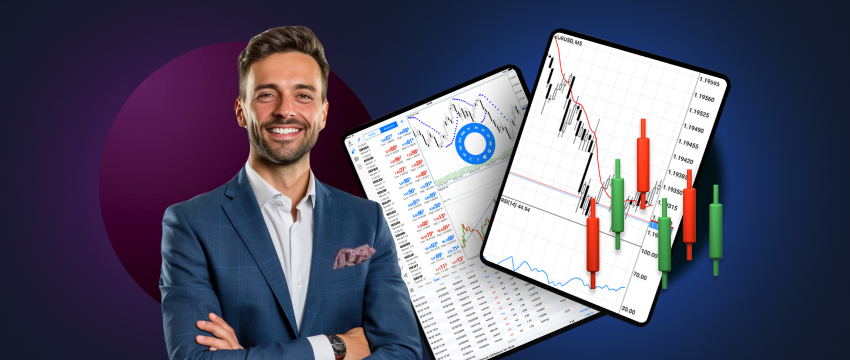Trading the financial markets is very risky, leading to a high proportion of forex traders facing failure.
There are several reasons for this, ranging from lack of education and knowledge, poor risk management, and more.
In addition to factors such as not maintaining discipline and trading without a plan, several other key reasons contribute to trading difficulties.
Let’s explore these reasons in more detail.
1. Lack of education and knowledge among forex traders.
Continuous learning is important for developing trading skills and making informed decisions. Many forex traders start trading without a good understanding of how the markets work.
This lack of knowledge leads to impulsive decision-making and substantial financial losses.
Staying educated is also vital for keeping up with market trends, new strategies, and technological advancements. Furthermore, it ensures that you remain adaptable and competitive in an ever-changing environment.
The markets are constantly evolving, and traders who fail to adapt risk falling behind and missing key opportunities.
2. Poor Risk Management in Forex Traders
Traders should focus just as much on risk management as they do on developing their strategy.
Traders who fail to implement effective risk management strategies are more likely to experience greater losses.
The most popular risk management tools are stop-loss and take-profit orders. Additionally, position sizing is another.
3. Emotional decision-making
Trading can be very stressful, often triggering different emotions like fear, overconfidence, and greed.
These emotions can cloud judgment, leading to impulsive and irrational decisions.
Successful trading requires traders to be disciplined and stick to their trading plan, regardless of market fluctuations or emotional highs and lows.
4. Not maintaining discipline
One of the biggest mistakes a trader can make is allowing emotions to drive their trading decisions.
Successful forex trading requires the ability to accept small losses while capitalizing on bigger wins. However, experiencing consecutive losses can test a trader’s patience and undermine their confidence. As a result, it’s crucial to stay focused and maintain a disciplined approach.
Furthermore, traders who recognize the emotional challenges of losses are better equipped to manage their reactions and stay on track. In addition, emotional reactions, such as fear and greed, often lead to poor decisions—such as cutting winning trades too early or holding onto losing positions for too long.
Consequently, these actions can severely impact a trader’s profitability and overall strategy.
The key to overcoming emotion is to follow a well-structured trading plan that helps in maintaining trading discipline.

5. Trading without a plan among forex traders.
Whether you trade forex or any other asset class, the first step in achieving success is to create and follow a trading plan.
“Failing to plan is planning to fail” is a saying that holds true for any type of trading.
Successful forex traders follow a well-documented plan that includes risk management rules and clear return on investment (ROI) expectations.
Sticking to a strategic trading plan helps avoid common pitfalls. Without a plan, you risk limiting your potential in the forex market.
6. Failing to adapt to the market
Successful trading requires flexibility and the ability to adjust strategies as market conditions change. You should create a plan for every trade before the market opens.
Performing thorough analysis and planning the moves and countermoves for each potential market situation can significantly reduce the risk of large, unexpected losses.
As a result, traders can approach the market with greater confidence, knowing they are prepared for various scenarios.
Moreover, this proactive approach allows traders to identify opportunities more effectively and make informed decisions that align with their long-term strategy.
As the market changes, it presents new opportunities and risks. Sticking to a rigid strategy or relying on a single approach can lead to significant losses.
The most successful traders stay ahead with continuous learning, adapting to new trends, and refining their strategies.
They prepare for low probability events, ensuring they are never caught off guard by sudden market movements.
7. Learning through trial and error
The most expensive way to learn forex trading is through trial and error. Relying on mistakes to discover the right strategies is not an efficient way to trade any market as it can lead to huge losses.
The most efficient way to become a successful currency trader is learning from experienced traders.
Whether through formal trading education or mentorship, gaining insights from successful traders can help you build confidence.
8. Forex traders having impractical expectations
Trading forex is not a get-rich quick scheme, it takes time, patience, and skill. Setting realistic goals and understanding the time and effort required for success can help you stay focused and avoid unnecessary risks.
9. Overtrading
The temptation to overtrade can lead to poor trading outcomes and the loss of potential profits.
Beyond incurring higher transaction costs, overtrading often leads to impulsive decisions, undermining the overall trading strategy.
Overtrading may be driven by boredom, FOMO (fear of missing out), anxiety, or stress.
Regardless of the reason, maintaining emotional control and a disciplined mindset is key to resisting the desire to overtrade.
In fact, doing so helps traders stay focused on their long-term goals and avoid impulsive decisions that can negatively impact their performance.
10. Fluctuations in the market for forex traders
Financial markets are highly volatile and without proper risk management measures in place, traders can lose money quickly.
Price fluctuations can happen suddenly and unexpectedly, requiring traders to stay focused, and react and adapt quickly to changing market conditions.

How to minimize losses
Every trader wants to avoid losses, but how can you protect your capital and make better trading decisions? Here are some key steps:
Step 1: Use leverage wisely
Leverage can be a powerful tool; however, it’s also one of the biggest risks for traders, especially if you lack experience.
Therefore, never risk more than you can afford to lose. Additionally, leverage can magnify losses just as much as it can magnify gains.
To mitigate this risk, proper risk management techniques, such as stop-loss orders, are essential for protecting your money when the market turns against you.
Furthermore, these techniques help limit potential losses, allowing you to manage your transactions more effectively and minimize negative impacts on your overall strategy.
ขั้นตอนที่ 2: Invest in your education
Before you start trading, take the time to learn. Read blogs, watch videos, attend webinars, listen to podcasts, and explore trading guides.
Choose the learning resources that suit your learning style and help you to gain a good understanding of trading fundamentals.
Step 3: Develop an effective trading plan for forex traders
Create an effective trading plan and stick to it. Successful trading is all about discipline and focus so you need to have a proper plan in place to drive your trading decisions.
The plan should align with your goals, budget, และ สไตล์การเทรด, while integrating your risk management measures. Remember, failing to plan is planning to fail.
Step 4: Practice on a demo account
One of the best ways to improve your trading skills is by using a demo account.
This allows you to practice in real market conditions without the risk of losing real money.
A demo account is a great way to get the feel for real trading, test different strategies, and build confidence. With a demo account, you can execute as many trades as you want, try out simple to complex strategies, and analyse your performance.
Step 5: Manage your trading psychology
Emotions can easily cloud your judgment if not managed properly. Recognise the feelings that arise during trading and identify what triggers them.
Understanding why you feel the way you do is half the battle. The next step is learning to manage those emotions, so you can stay objective and make clear, rational decisions.

In summary
Many of the reasons forex traders fail are the same as those that affect traders of other asset classes.
The simplest way to avoid these pitfalls is by connecting with other successful forex traders who can teach you the right trading disciplines, including the risk and money management rules required to trade the forex market.
Only then will you be able to plan effectively and set realistic return expectations that help you avoid taking unnecessary risks for potential gains.
Disclaimer: This material is for general informational and educational purposes only and should not be considered investment advice or an investment recommendation. T4Trade is not responsible for any data provided by third parties referenced or hyperlinked in this communication.





